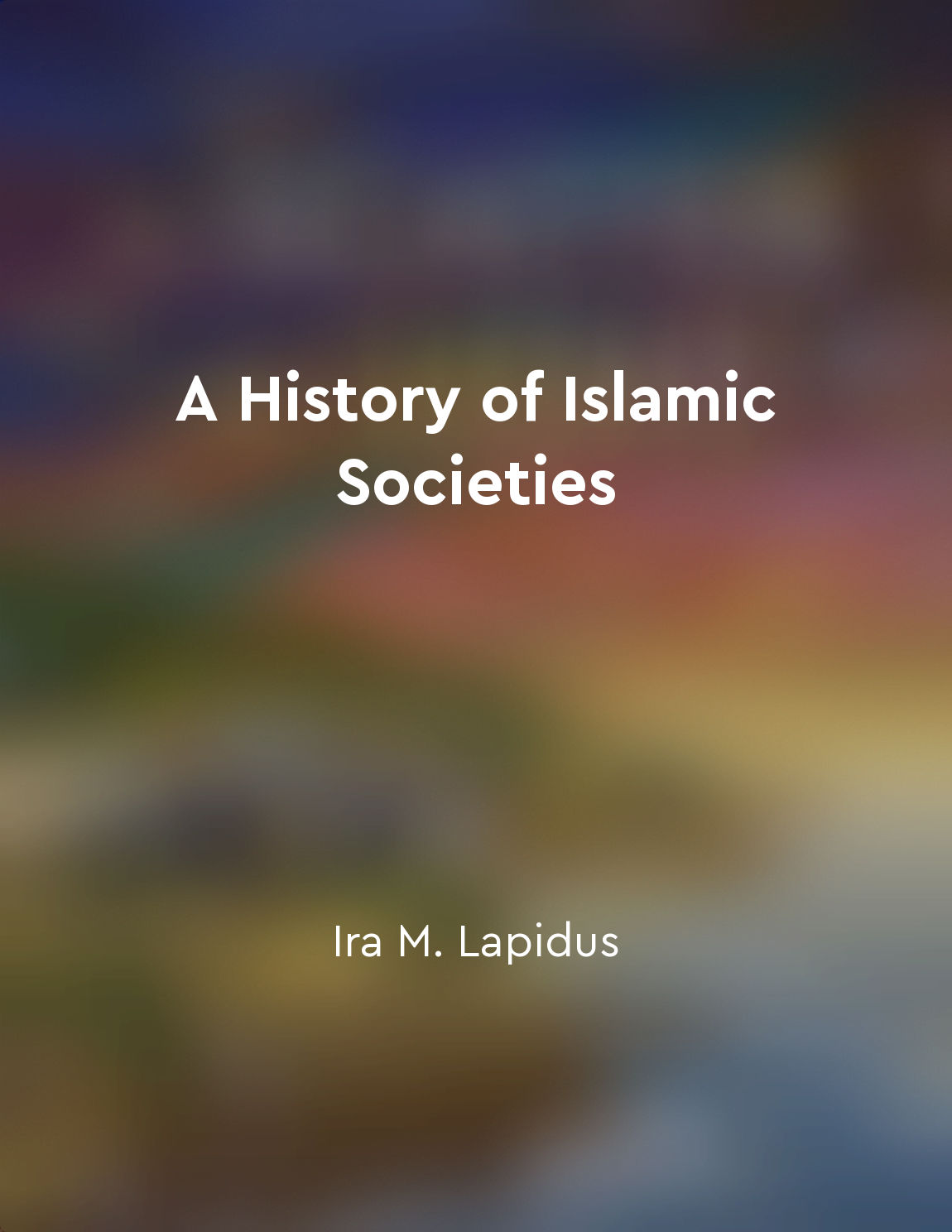Islamic societies developed sophisticated systems of governance from "summary" of A History of Islamic Societies by Ira M. Lapidus
Islamic societies in the medieval period developed complex systems of governance that were highly sophisticated for their time. These systems were based on a combination of Islamic law, administrative practices, and cultural traditions that allowed for the effective management of diverse populations and territories. One key feature of these governance systems was the concept of the caliphate, which served as both a religious and political institution that provided leadership and guidance to the Muslim community. The caliphate was responsible for upholding Islamic law and ensuring the welfare of the people under its rule. This involved overseeing various aspects of governance, such as taxation, justice, and public works, as well as maintaining social order and security. The caliphate also played a crucial role in promoting trade and commerce, which helped to stimulate economic growth and cultural exchange within Islamic societies. In addition to the caliphate, Islamic societies also developed sophisticated bureaucratic structures that were essential for the functioning of the state. These structures included a hierarchy of officials and administrators who were responsible for implementing government policies, collecting taxes, and managing the day-to-day affairs of the state. Bureaucrats were often highly educated and trained in various fields, such as law, finance, and diplomacy, which enabled them to effectively govern a vast and diverse empire. Furthermore, Islamic societies placed a strong emphasis on consultation and consensus-building in their governance practices. This was reflected in the practice of shura, or consultation, which involved seeking the advice and input of scholars, officials, and other stakeholders in the decision-making process. By involving a wide range of perspectives and expertise, Islamic societies were able to make more informed and inclusive decisions that were responsive to the needs and concerns of the population.- The development of sophisticated systems of governance in Islamic societies was a testament to the ingenuity and adaptability of Muslim rulers and administrators. By drawing on a combination of Islamic principles, administrative practices, and cultural traditions, Islamic societies were able to create effective and resilient governance structures that facilitated the growth and prosperity of their civilizations.
Similar Posts
Role of culture and religion in shaping political order
Culture and religion play a crucial role in shaping the political order of a society. Both these factors influence the beliefs,...
Hadīth compilers faced challenges in verifying sources
The compilers of Hadīth undoubtedly encountered significant challenges when it came to verifying the sources of the traditions ...
Migration to Medina
The migration to Medina marked a significant turning point in the life of the Prophet Muhammad (peace be upon him) and the earl...

The Quran provided a unifying foundation for Islamic societies
The Quran, as the holy scripture of Islam, played a crucial role in providing a common foundation for Islamic societies. This u...

Sufism was an important spiritual tradition in Islamic societies
Sufism emerged as a significant spiritual tradition within Islamic societies, offering a unique approach to understanding and e...

The Ottoman Empire played a crucial role in shaping Islamic societies
The Ottoman Empire exerted a profound influence on the development of Islamic societies over the course of several centuries. T...

